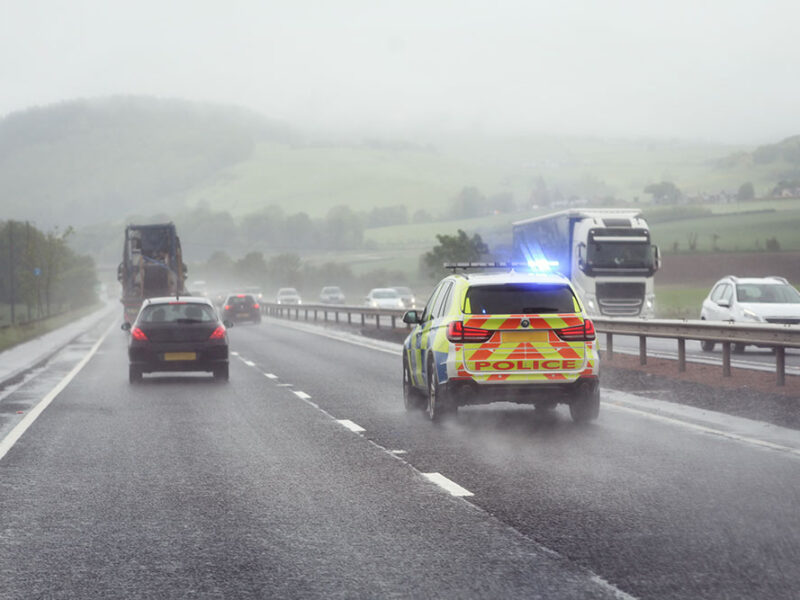The Annual Traffic Commissioners report for 2018-2019 had recently been published. The report looks at what the Commissioners have achieved as well as setting out their plans for the future.
The first Minister for Transport was appointed in 1919, with legislation establishing the role of traffic commissioners introduced by 1929. The first Annual Report was published in 1932.
In the foreword by the Senior Traffic Commissioner, Mr. Richard Turfitt, he emphasises that one of the key "attractions" back in 1932 was "the setting up of an independent tribunal to consider applications for road service licences" - in other words, the creation of a level playing field and a consistent set of rules equably applicable to all licence holders. Mr. Turfitt goes on to point out that this aim is very much front and centre of the regulatory regime today; the same sentiment having been echoed recently by the Senior President of Tribunals (Ernest Ryder) when he described access to justice as an indivisible right where "there can be no second class".
The areas of compliance that have been cited by Traffic Commissioners as causing most concern during the year are: brake test performance, transport manager accountability, digital tachographs and driver management and lastly bridge strike incidents - which are apparently on the rise.
2018 - 2019 has been a busy year for the traffic commissioners, with nearly 1,600 public inquiries held, 335 preliminary hearings and 126 Senior Team Leader interviews conducted.
The report states that there are currently nearly 71,000 goods vehicle operator licences and just under 8,000 PSV operator licenses. Within the UK there are over 25 million journeys on scheduled coach operations each year and 78% of all domestic freight is moved by hauliers.
If you would like to read the latest Traffic Commissioners report click here to go through to the Government website.
Looking to the future, the two key objectives the Traffic Commissioners have listed for the year 2020-2021 are to;
- Deliver a modern, effective operator's licence regime that ensures operators are fit to hold a licence whilst minimising the regulatory burden on the compliant; and to
- Promote a safe road transport industry, which supports compliance, fair competition and protects the environment.
If you would like to discuss any issues relating to the new report, or about your business in general, then call us on 01279 818280 or click here to send an email.

More News and Insight

Clandestine Entrant Civil Penalty Scheme Gets Overhaul by UK Border Force
In January 2026 the Clandestine Entrant Civil Penalty Scheme (CECPS) was given a major overhaul by the UK Government following lobbying and campaigning by organisations such as the Road Haulage Association…

Abnormal Loads – Calls for Changes to Law for Abnormal Loads Needing Police Escorts
Recently in the trade press there have been articles reporting calls from the UK’s Heavy Transport Association (HTA) for the law to be changed regarding police escorting of abnormal loads….

DVLA Confirms New Rules for Professional Drivers Living with Diabetes
From Friday 7th November 2025 the rules were changed to allow diabetic drivers of PSV’s and HGV’s to monitor their glucose levels using Continuous Glucose Monitoring Systems….

Carrying Your Own: Horses to Widgets? Do you Need an O Licence?
The DVSA recently released a press release about the rules for transporting horses in horse boxes and trailers following an update on the guidance about using a tachograph in the vehicle being used to transport the animals…

The Senior Traffic Commissioner’s Statutory Guidance
The value of The Statutory Guidance Documents and the importance to operators, nominated transport managers and other professionals involved in the operation and driving of large commercial vehicles cannot be overstated…

Walkaround Checks – Where Road Safety Starts
Every day, often before the sun is above the horizon, hundreds of thousands of commercial vehicles are started up by their drivers and then they head out on to the UK’s road network to transport goods or passengers from one point to another, often with demanding time constraints thrown into the mix…

Traffic Commissioner’s Annual Report 2024/25: “Don’t Look Back in Anger”
Time has flown by and once again we find that the schools are back after the long summer break and the Office of the Traffic Commissioner has issued its annual report to the Secretary of State, providing a review of the year…

An Apple a Day to Keep the DVLA Away – A review of the DVLA’s Rules on Health Checks for Professional Drivers
There has been some discussion in the industry trade press recently that has highlighted proposed changes to how the disease of diabetes is monitored in professional drivers by the DVLA. One article in RouteOne Magazine stated that…

Light Goods – Heavyweight Industry: The DVSA’s New LGV Strategy
While relatively small in overall physical size light goods vehicles (LGVs) are now a large part of the UK road transport industry. There are currently estimated to be over 5.1 million light goods vehicles on UK roads today…

Employment Law Update – A tale like Scylla & Charybdis
Operators currently face their own real time nightmare in the form of a modern day version of the Greek mythological tale of Scylla and Charybdis (where sailors faced a narrow strait through which they had to pass which had a monster on one side and a whirlpool on the other!)…

Labour Government – Employment Rights Bill – What Will It Mean for Transport Businesses?
In October 2024 the Deputy Prime Minister, Angela Rayner set out her intention to reform the employment rights held by employees in the UK. In a press release issued at the time she is quoted a saying…

Revisiting the DVSA’s Guide to Maintaining Roadworthiness
In April 2025 the Driver & Vehicle Standards Agency (DVSA) issued the latest edition of its Guide to Maintaining Roadworthiness.
